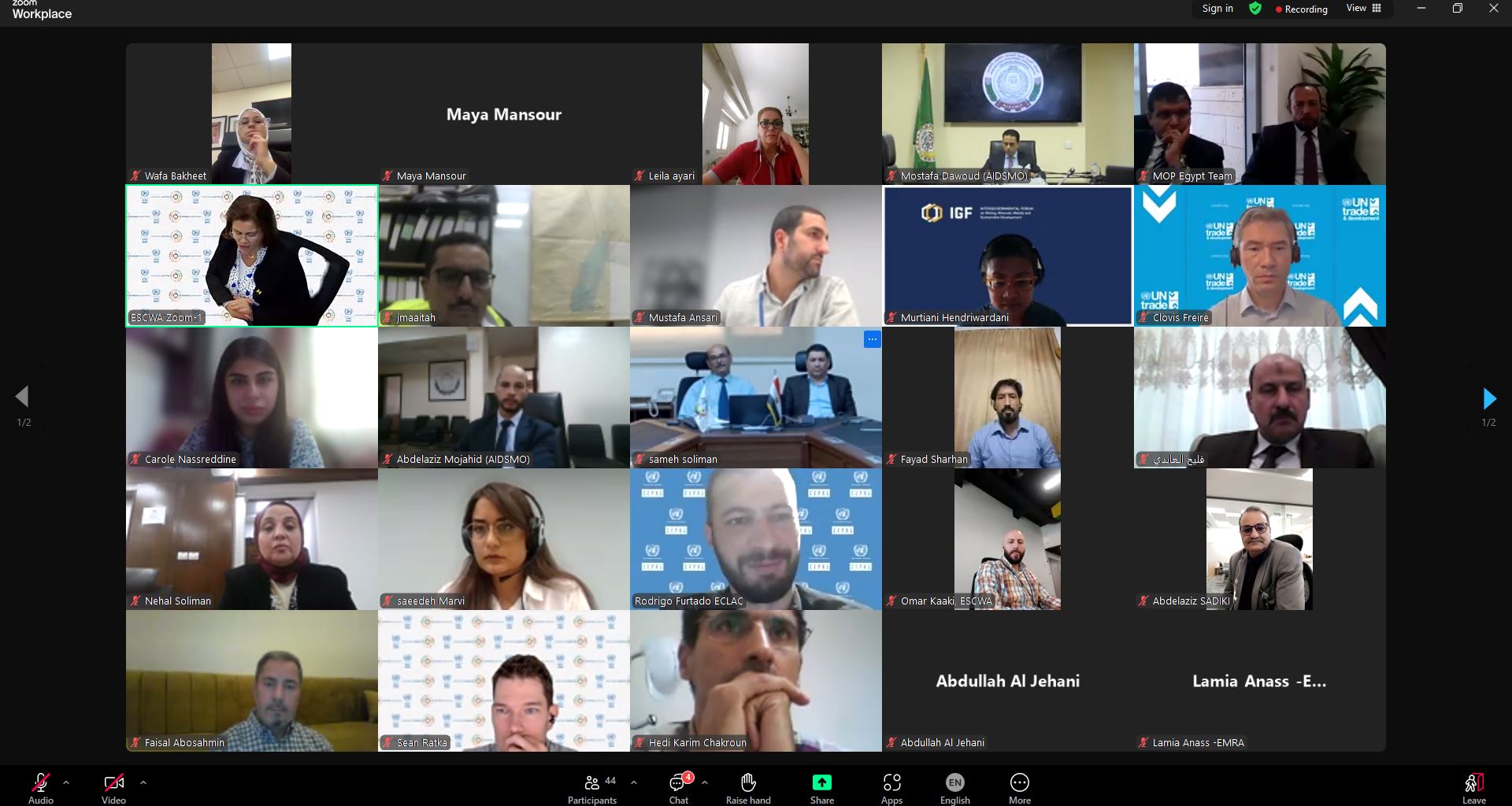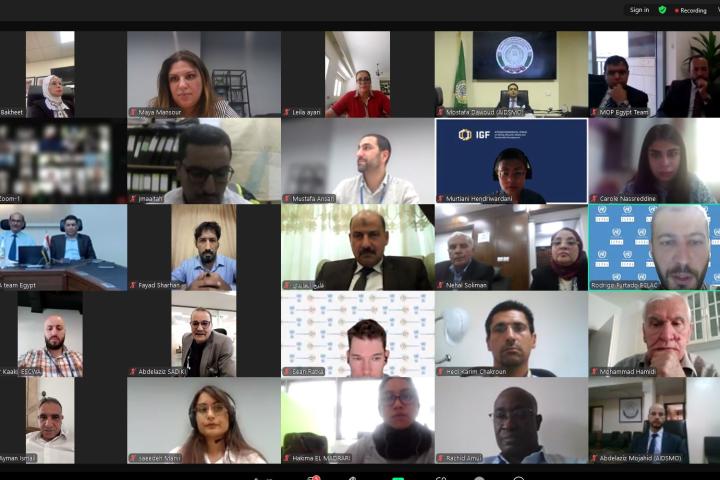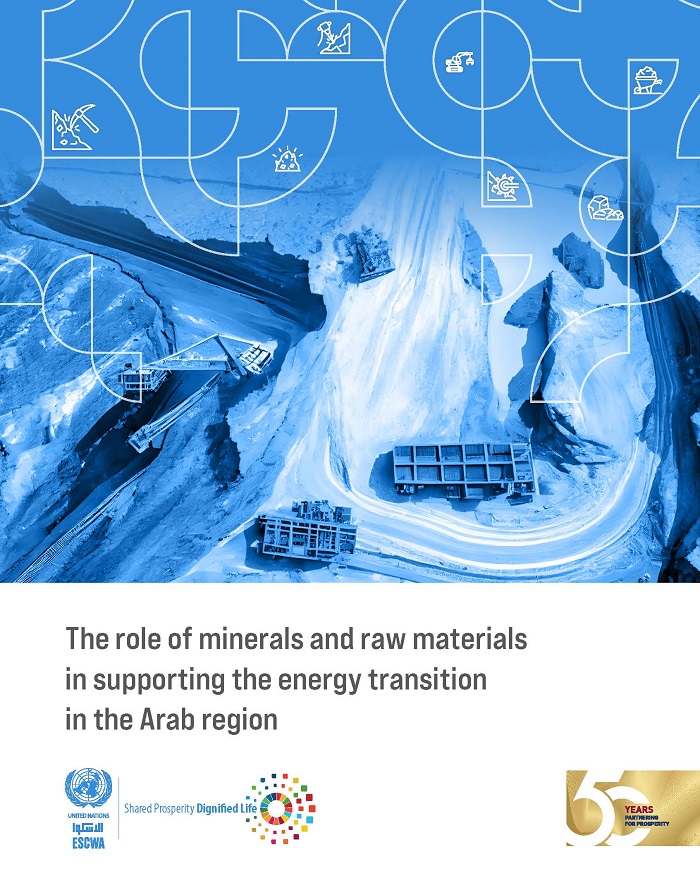Effective climate action and the global deployment of renewable energy technologies rely on the sufficient, reliable, and affordable supply of critical energy transition minerals. Energy-related mineral security has emerged as a key topic of concern, with many United Nations Member States developing mineral security policies and lists of “critical minerals”, “critical raw materials” and “strategic minerals” to identify and reduce supply chain disruptions to manufacturing.
ESCWA, in collaboration with the Arab Industrial Development, Standardization and Mining Organization (AIDSMO), is organizing an expert group meeting to present policy papers prepared by the Working Group on Transforming the Extractive Industries for Sustainable Development, established by the United Nations Secretary General. The aim is to gather feedback and recommendations to address the main areas of work in the Arab region.



